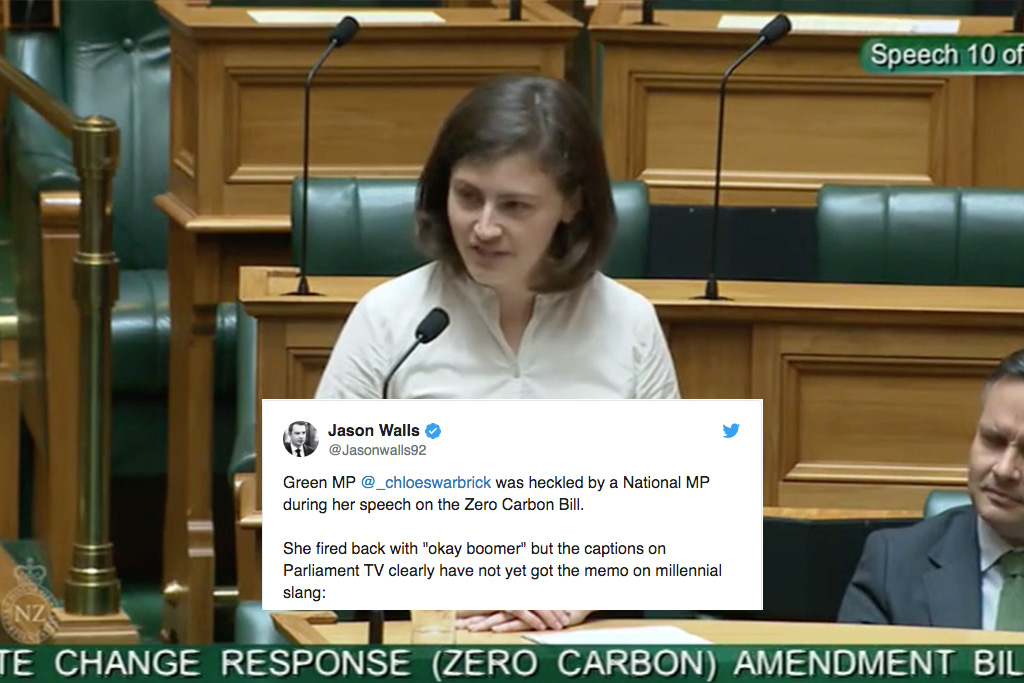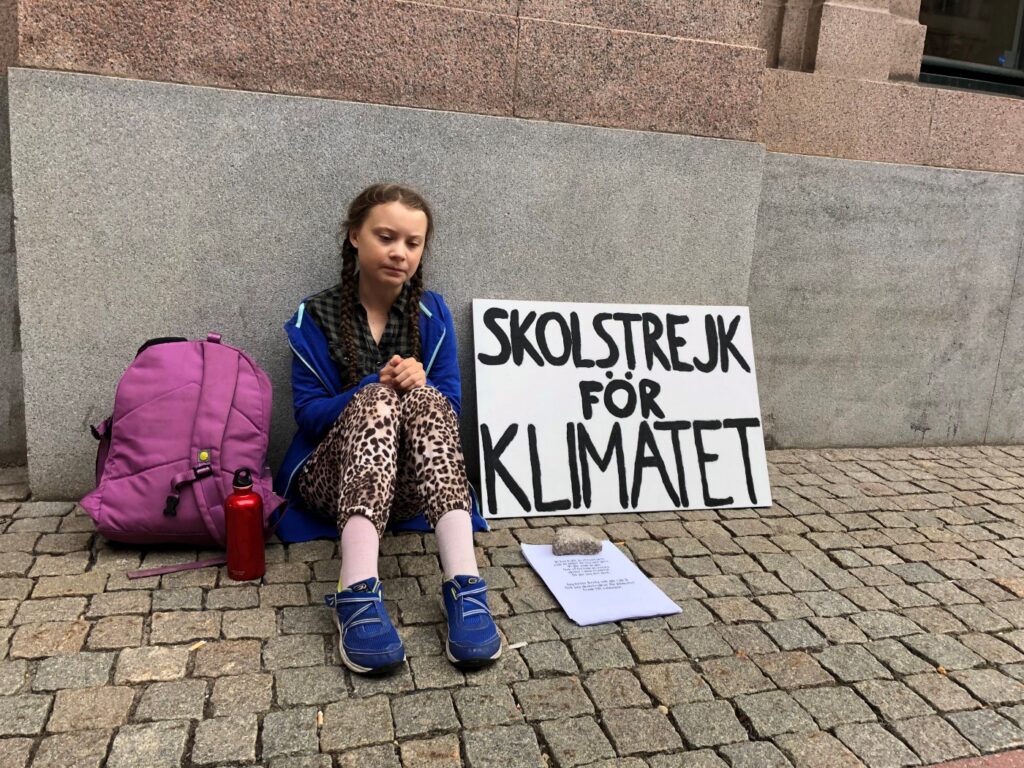Spring officially started last weekend, and although it seemed like Punxsutawney Phil’s prediction of six more weeks of winter was bogus (it was top-down weather in my Miata in February), it is snowing again as this post goes live. Unusual and extreme weather has become the rule rather than the exception the past few years, contributing to growing climate anxiety in many, including myself. The responses to this newly defined condition are wide-ranging, with a mix of pessimism and optimism about how quickly we’re approaching total destruction of the human race and how much impact we can have on reversing course.
Climate Anxiety
Although the climate is an important subject for me, I generally try to avoid thinking about it. I still do my (imperfect) best to monitor my own behavior and consumption: limiting plastic purchases and appropriately sorting/recycling what does wind up in my house;[1] eating local, in-season food;[2] composting my own food waste, yard debris, and kitty waste;[3] limiting travel by car and plane (it’s not zero, but I’d be doing a lot more globe-trotting if it didn’t come with such a huge price tag of guilt);[4] etc. But I find it hard to follow news about climate change because it typically sends me into a downward spiral of despair.

Image credit: [5]
I expend most of my emotional energy at my day job, which is not climate-focused, but does nonetheless deal with certain impacts of our addiction to fossil fuels. Again, this blog is a work of my own and not representative of any position held by my company. By the time I’m done at the end of the day, I find it difficult to watch news about war, or politics, or weather disasters – it all plays into a growing sense of anxiety and doom. I probably wouldn’t have even chosen to spend time writing about this subject if I didn’t know for a fact that others – many others – are in the same boat.
Climate Anxiety, or Eco-Anxiety, is not officially listed in the DSM-5 as a diagnosable mental health condition, but anxiety, depression, and even in some cases of PTSD related to extreme weather events appear to be on the rise. Therapists say patients tend to feel overwhelmed or powerless, struggle with depression and/or panic attacks, and turn to unhealthy coping mechanisms.[6] But many of those therapists don’t always know how to deal with this growing issue, having never received formal training for helping clients who feel they are looking down the barrel of the planet’s next extinction event. The vast majority of the people who feel this way are young people.[7]
Generational Reactions
A 2021 study in The Lancet surveyed 10,000 individuals aged 16-25 across 10 countries about their perceptions of climate change, and the results were far worse than I was expecting to see. When asked to agree or disagree with a series of statements, 83% agreed that people have failed to take care of the planet, 76% that the future is frightening, and 56% that humanity is doomed. The study concluded that “climate anxiety and dissatisfaction with government responses are widespread in children and young people in countries across the world and impact their daily functioning. A perceived failure by governments to respond to the climate crisis is associated with increased distress.”[8]

Image credit: [9]
Now, I hate generational categories for a number of reasons, not the least of which is because I am in the “Oregon Trail” micro-generation that grew up in an analog world and came of age in a digital world.[10] I’ve got some Gen-X cynicism and some Millennial confidence, but my peer group as a child consisted almost exclusively of my parents and their friends, so I’m at least culturally part-Boomer too. I find labels to be limiting and flattening, and I don’t want to see anyone pigeonholed into a category, least of all myself. I’m also too lazy and don’t have enough mental bandwidth to keep track of Millennials, Gen Z, and Gen Alpha (which I just learned existed).[11]
I raise this topic because there is a lot of focus on how different generations are reacting to the climate crisis. Sources I read for this post tended to use generational labels, especially focusing on Generation Z as the most active in the climate fight, but I try to think of the people being discussed as individuals with varying influences and priorities. It’s easy to talk about characteristic trends when grouping people by age brackets, but a Millennial born in 1996 and a Gen Z-er born in 1997 aren’t going to be that different – at least not because of birth year. When it comes to climate response, I believe that individuals live on a continuum where trends in their attitudes and actions are strongly influenced by one specific variable: how long they will have to live with the consequences of decisions made today.
The Power of One
According to a recent New York Times article, there is a strong movement among younger adults to set aside the climate doomism and take action to be part of the solution. Listening to the doom narrative discourages people from taking action (“what difference can I make?”) and can even absolve them of responsibility (“if nothing can be done, why bother making an effort?”) If we’re going to point fingers at whose actions can have the biggest impact in reversing course on climate change, we can absolutely argue that an individual fossil fuel company can make more of a difference than an individual person. But that doesn’t mean individuals shouldn’t take action themselves.[12]

Image credit: [13]
I am not a member of Gen-Z, but I do agree with the idea that one person can educate and inspire others. (If I didn’t, this blog would not still be here after three years and 150-some posts.) While I am doom and gloom most of the time about the climate, I absolutely believe that individuals cannot stop fighting – no matter the outcome, I have to say I tried. And while fossil fuel interests should bear their fair share of responsibility, individuals can help that happen and hold them accountable by raising awareness, demanding action, voting with their dollars by switching to renewable energies, and voting for decision makers who support equitable climate policy.
Many of the people who are taking the lead in this fight are young enough to have grown up with social media. I’ve written before about the dangers of some of these addictive platforms, powered by machine learning to feed us more and more of the same, or even (in more nefarious situations) to shape how we think about certain issues.[14] Younger climate activists seem to be largely aware that news consumption – particularly on social media – impacts our perspectives and, consequently, our actions: 29-year-old podcast host Philip Aiken suggests a news diet of 20% problems and 80% solutions;[15] 25-year-old sustainability scientist Alaina Wood fights the negative narrative by debunking extreme doomsaying projections and promoting climate activist wins;[16] several other climate influencers and their efforts are listed in the NYT article referenced in this post.[17]
As I wrote in my recent “Saving Us” post,[18] climate scientist Katharine Hayhoe (member of a more cynical generation, if we’re going by stereotypes) believes we can get out of this mess we’ve gotten ourselves into – and the faster we act, the better the outcome will be. So educate yourself, talk to your friends and family, vote with your dollar and in the booth. And if you have thoughts or questions, please share them below.
Thanks for reading!
[1] https://radicalmoderate.online/plastic-waste-options-in-pittsburgh/
[2] https://radicalmoderate.online/community-supported-agriculture-part-1/
[3] https://radicalmoderate.online/kitty-litter-compost/
[4] https://radicalmoderate.online/the-real-cost-of-travel/
[5] https://www.quora.com/What-are-some-of-the-best-battlecries-from-fantasy-books-novels
[6] https://nyctherapy.com/therapists-nyc-blog/5-symptoms-of-environmental-anxiety/
[7] https://www.theguardian.com/environment/2021/apr/20/climate-emergency-anxiety-threapists
[8] https://www.thelancet.com/journals/lanplh/article/PIIS2542-5196(21)00278-3/fulltext
[9] https://junkee.com/chloe-swarbrick-ok-boomer/227638
[10] https://socialmediaweek.org/blog/2015/04/oregon-trail-generation/
[11] https://en.wikipedia.org/wiki/Generation#Western_world
[12] https://www.nytimes.com/2022/03/22/climate/climate-change-ok-doomer.html
[13] https://medium.com/wedonthavetime/this-15-year-old-girl-breaks-swedish-law-for-the-climate-d1a48ab97e3a
[14] https://radicalmoderate.online/november-2020-elections-part-2/
[15] https://philthefixer.org/
[16] https://www.tiktok.com/@thegarbagequeen
[17] https://www.nytimes.com/2022/03/22/climate/climate-change-ok-doomer.html
[18] https://radicalmoderate.online/saving-us-getting-through-2022-together-part-1/
0 Comments